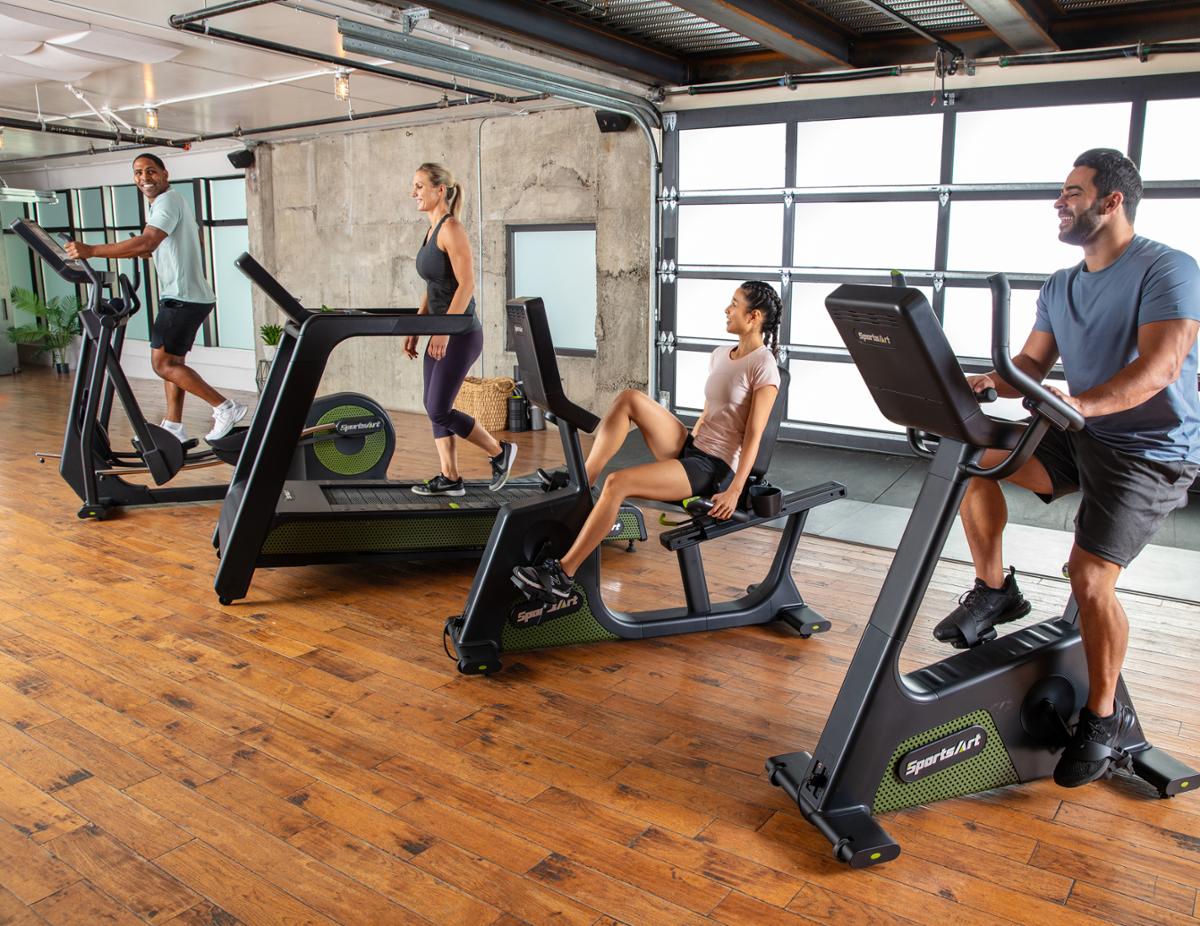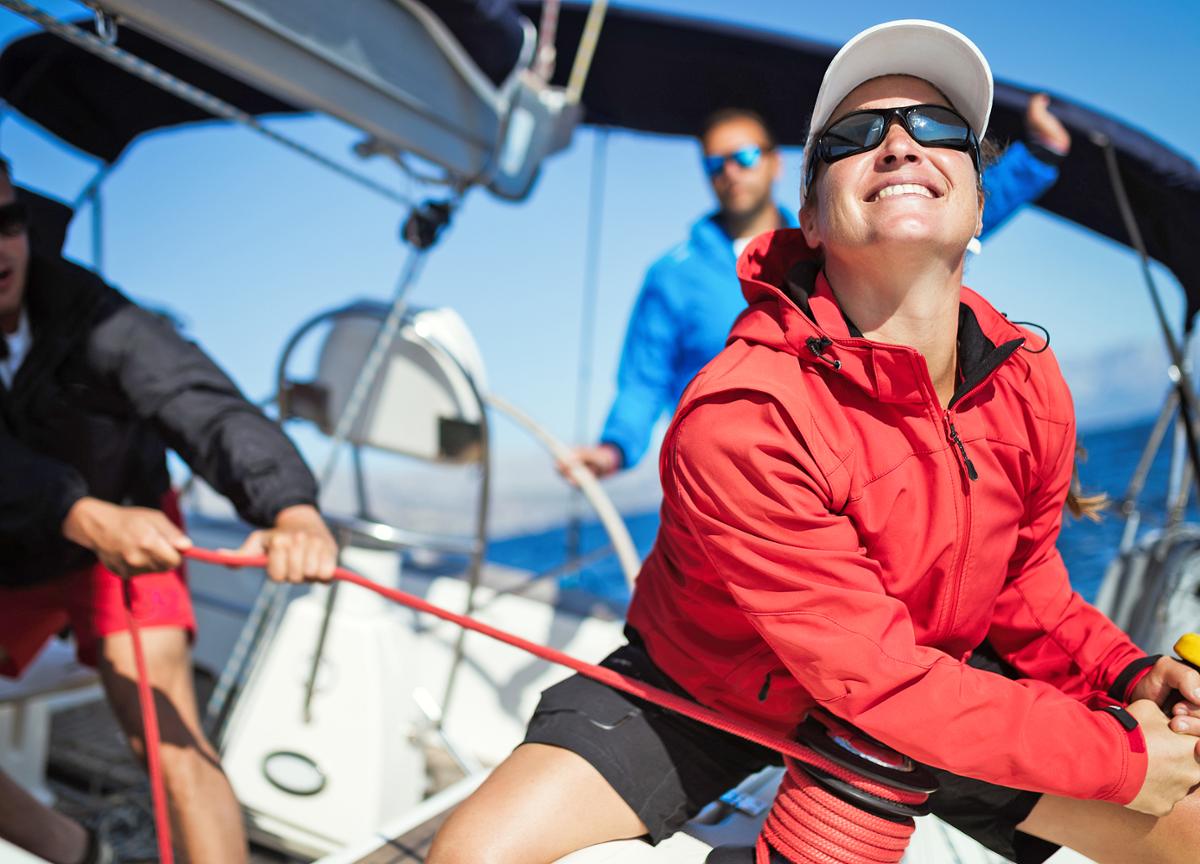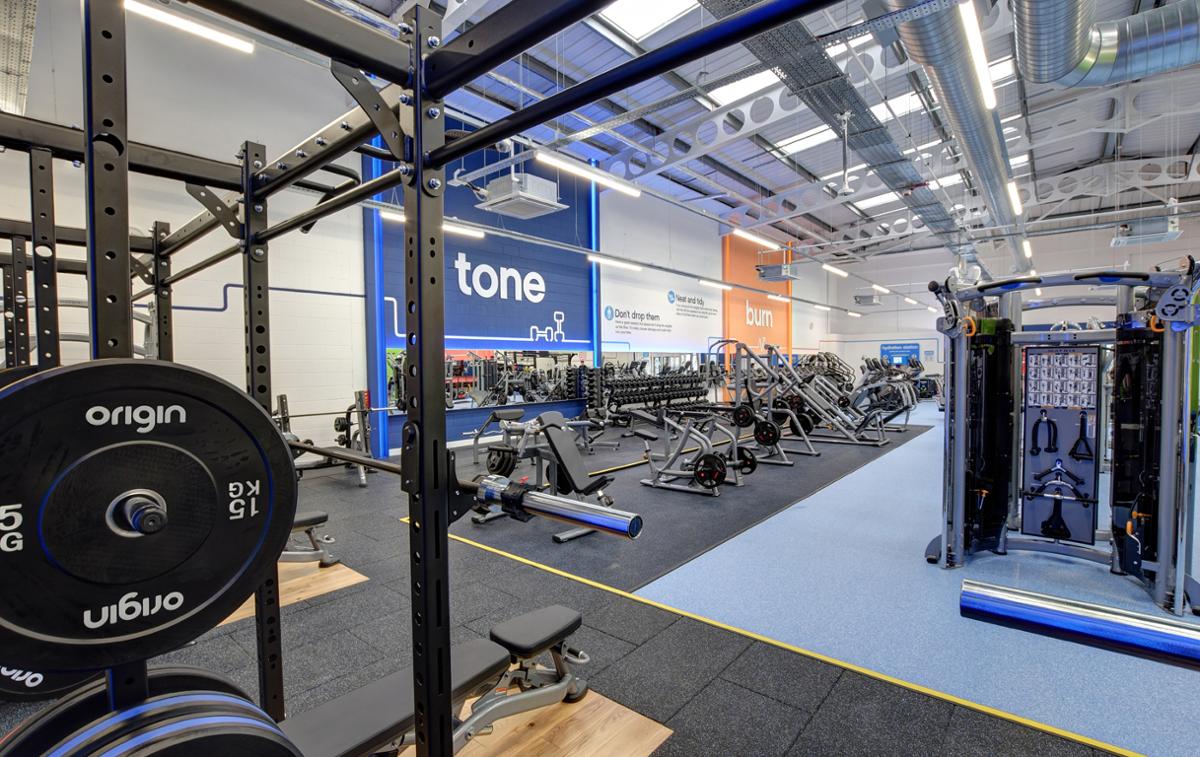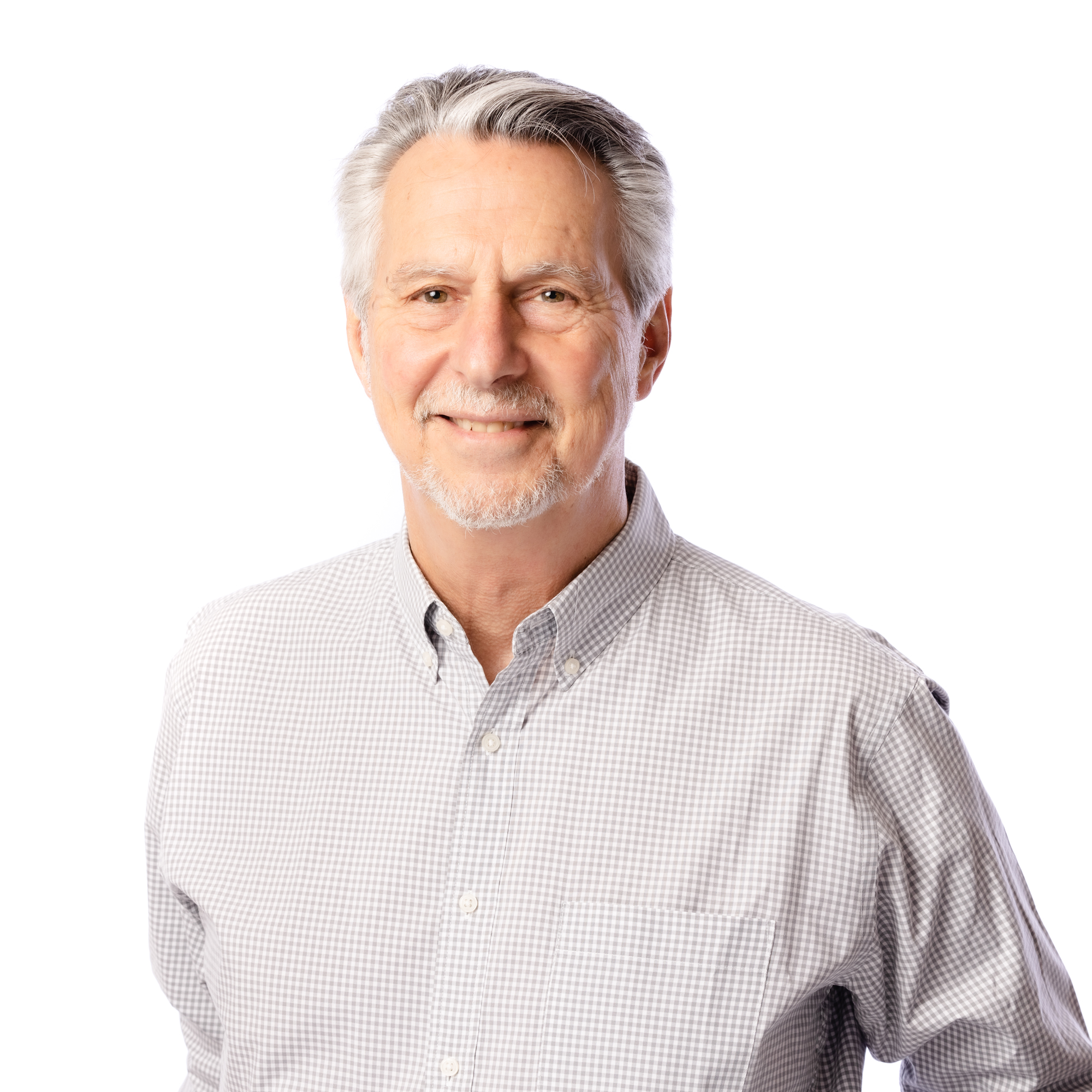Climate scientists estimate the world adds around 50bn tonnes of greenhouse gases to the atmosphere each year, most of them believe we need to be aiming for zero tonnes. Even when the world came to a virtual halt, scientists estimated greenhouse gas emissions dropped by only around 5bn tonnes, so even if we give up flying and driving, it’s a long way to get to zero.
Almost every major health organisation in the world recommends 150 minutes of moderate-intensity activity a week for adults aged 19 to 64 years of age, yet despite the widely reported benefits of exercise, most adults do not meet these recommendations.
In the US, Harvard Health estimates 80 per cent of the population are not meeting the guidelines. In the UK, the NHS estimates around 36 per cent are doing zero activity. The Academy of Royal Colleges estimates more than 40 per cent fail to do even 30 minutes a week.
The big hitters
Prioritising healthy, balanced movement has become the focus of both the largest companies in the world and countless start-ups hoping to emulate the success of meditation apps Calm – with its US$2bn valuation – and Headspace which has had some 65 million downloads. Both are rapidly gaining acceptance as part of the thriving wellbeing economy.
Some companies are using their size and scale to make a difference to both planetary and personal health. Set on a 175-acre campus, planted with 7,000 trees, Apple has promised to become fully carbon neutral by 2030, including the entire supply chain and lifecycle of its products.
Since its debut, the Apple Watch has been positioned as a tool to help improve health and in 2020 had around 55 per cent of the global smartwatch market, according to Statista. The launch of Fitness+, powered by the Apple Watch, has deepened the company’s commitment.
Combining expertise in artificial intelligence, computer vision and machine learning, Amazon’s Movement Health – its wrist-worn health and fitness tracker – will produce a personalised programme of exercises to improve everyday movements, such as walking. Amazon has also co-funded The Climate Pledge, a commitment to be 100 per cent renewable by 2030 and net-zero across all its businesses by 2040 – 10 years ahead of the Paris Agreement.
Google is interested in the US$3.5tr US healthcare market and has purchased Fitbit for around US$2bn and invested in more than 60 health-related start-ups. Google is also aiming to be carbon-free by 2030, while Microsoft plans to become carbon negative by 2030.
Change is coming
More people searched for ‘How to live a more sustainable lifestyle’ in 2020 than ever before and both large and small companies are realising that shareholder activism is on the rise. Environmental, Social and Governance interventions (ESG) are becoming the focus. The investment workforce is increasingly made up of Millennials for whom ESG is seen as vital to both the planet and workforce health.
The Harvard Business Review found companies are being held accountable by shareholders for ESG performance, with an ever-growing number of environmental and social shareholder resolutions being filed. Climate Action 100+, which includes more than 320 investors (representing US$32tr under investment), is lobbying the largest greenhouse gas emitters to address climate change and set targets to cut emissions.
Former governor of the Bank of England, Mark Carney, is now the United Nations envoy for climate action and finance, tasked with persuading policymakers, CEOs, bankers and investors to focus on the environment. Developing standards and reliable systems to measure ESG performance will become more common as external reporting becomes accepted practice.
The UK Sport Think Tank recently revealed that 69 per cent of sports fans aged 16-24 support action against climate change. According to Global Web Index, young people also believe sport should do more to act sustainably and help the community.
Perhaps the current popularity of outdoor activities, gyms, functional training and sustainable exercise is young people sending a message about their attitudes: the number of outdoor walks logged on Strava and Apple Health trebled in 2020.
The fitness sector
The Gym Group has stated the importance of its ESG policies. Its first low-carbon gym at Beverley in Yorkshire, uses an air-sourced heat pump and air conditioning, lighting and water are on sensors to improve efficiency. Where the company controls the electricity supply, it has a green contract for all sites.
GLL, the largest charitable social enterprise in the UK, with more than 58 million visitors across 270 leisure centres, achieved zero waste to landfill in 2019 and uses renewable energy from 51 sources, including 46 solar installations, four biomass boilers and an air source heat pump.
New sustainable and eco fitness operators are emerging. MDL Fitness – a subsidiary of MDL Marina – launched its first eco gym in the UK in September 2021. The company already has green credentials, having installed solar panels generating 150,000kWh from April 2020 to February 2021 – the equivalent of planting 1,500 trees per year. Its proposed chain of green gyms will be powered by solar panels and will offer fitness equipment from Sports Art, which converts human kinetic energy into electricity.
Sports Art’s equipment is also installed at SO51 Fitness, Romsey. The club was the silver winner of the Futureproofing and Innovation Award 2020 and 74 per cent of the energy created by members during their workout is converted into utility-grade electricity.
Members can watch on screen as their workouts are turned into watts and uploaded to the grid. They can also monitor their position on a ‘Green Member’ leaderboard. Three levels of ‘green’ memberships are available – indoor, outdoor and online – putting personal health at the heart of planetary health.
The Gold’s Gym campus in Berlin, Germany – developed by new owner RSG – is a 55,000sq ft flagship site with a focus on sustainability. The cardio area has 10m high trees which filter pollutants, training floors made from recycled car tyres and wall tiles made from recycled computer monitors, while electricity is generated by 150 bicycle ergometers. A solar ‘flower’ saves solar energy and the heat and power plant runs on biogas. It’s quite possibly the greenest gym in the world and is CO2- and climate-neutral.
My own Energym exercise bike harnesses my energy, converting it into electrical power, which then powers my home office. While I’m training, the personal power meter displays my Functional Threshold Power (FTP), using a five-colour display to show how well I’m doing.
If all 10.4 million fitness members in the UK used Energym power, it would generate 200 watts of clean energy per person per workout, which would power an estimated 250,000 homes each day.
All aboard
Climate change has driven a growing global movement led by young people, such as Greta Thunberg. More than a million people regularly demonstrate in their thousands in ‘strikes for climate’ events in more than 100 countries on Fridays as a result and her influence, leading to her winning many awards and accolades – including three consecutive nominations for the Nobel Peace Prize in 2019-2021.
Climate change has many other official and unofficial envoys who have an impact, including Al Gore and David Attenborough; special US presidential envoy, John Kerry; the UN Race to Zero campaign and the Global Earth Challenge.
Climate change is a concern for everyone and rightly so, but although there is huge concern to drive the agenda for planetary health, there is no comparative level of concern to improve the health of individuals and by default, the health of nations.
The World Health Organization, along with every medical organisation in the world, says we should move more but there is a huge gap between what is recommended and what actually happens.
Unlike with climate change, there’s no social movement driving change to inspire people to commit to engaging in healthy balanced movement on a regular basis.
Movement needs a broader perspective than just returning to previous direct debit and health club membership club numbers. A society rebounding from COVID should not return to the status quo – the same spirit of tenacity and creativity we saw in the face of extreme uncertainty during the pandemic lockdowns needs to be relit.
Given the urgent need to reduce demand for energy across the economy, the leisure and activity sector needs a decarbonisation plan with a deadline. Currently, we have no pledges to deliver this.
As a result, I have co-founded a new platform for debate and we got the subject moving at the first Evolve conference in September 2021. Evolve aims to be the Y Combinator for health, putting planetary health at the heart of personal health.

































































